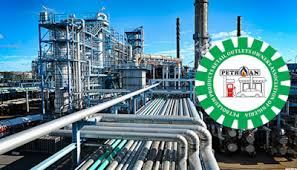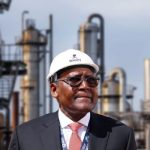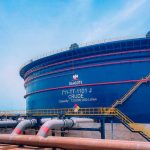The Petroleum Products Retail Outlet Owners Association of Nigeria (PETROAN) has confirmed that its members are now loading petroleum products from the Port Harcourt and Warri refineries. This comes amid previous doubts about whether the Nigerian National Petroleum Company Limited (NNPCL)-owned refineries were fully operational.
PETROAN spokesman Joseph Obele announced on Saturday that petroleum products such as Dual-Purpose Kerosene (DPK), Automotive Gas Oil (AGO), and Premium Motor Spirit (PMS) are now being distributed to retailers. He specified that while the Port Harcourt refinery is supplying petrol, diesel, and kerosene, the Warri refinery is currently focused on diesel and kerosene.
Obele highlighted that the revival of these refineries has intensified competition within the petroleum market, which could lead to lower fuel prices. “The resurgence of these refineries is expected to drive down petroleum prices. As Nigerians demand lower PMS prices, it is clear that competition plays a crucial role in achieving cost reductions,” he stated.
Additionally, he emphasized that the return of functional refineries has helped eliminate adulterated petroleum products from the market. “The absence of refining capacity had allowed fake diesel and kerosene to flood the market, posing significant risks. Now, with the availability of original products, the demand for fake petroleum has dropped, reducing the risk of explosions and equipment damage,” Obele explained.
Beyond the direct impact on fuel prices and product quality, the refineries’ operation is also addressing oil theft, which has long hindered Nigeria’s ability to meet its OPEC production targets. “With more crude oil being processed locally, we are seeing a reduction in crude oil theft, which will enhance Nigeria’s revenue and help stabilize the naira,” he said.
Furthermore, Obele pointed out that the restored refineries have created new job opportunities, revitalizing previously inactive depots. “Many depots that were once deserted are now filled with activity, and host communities are benefiting from empowerment programs. This is expected to have a positive impact on insecurity and crime rates in these regions,” he added.
PETROAN’s National President, Billy Gillis-Harry, echoed these sentiments, stating that community empowerment aligns with the provisions of the Petroleum Industry Act and the Nigerian Local Content Act. He praised the Managing Director of NNPCL Retail Ltd, Hubb Stockman, for fostering a sense of inclusion among host communities.
Harry urged PETROAN members and local communities to support the continued success of the refineries, stressing the importance of collaboration. “The operationalization of the Port Harcourt and Warri refineries is expected to boost economic growth by increasing the availability of petroleum products, reducing import dependence, and generating additional government revenue,” he said.
He further emphasized that the refineries’ operations would enhance Nigeria’s energy security, reduce pressure on foreign exchange reserves, and create a stable petroleum supply chain. “This will have a ripple effect across various sectors, including transportation, manufacturing, and agriculture, ultimately driving economic productivity and competitiveness,” he concluded.
With the two refineries now operational, industry stakeholders are optimistic that Nigeria will see greater energy stability, economic benefits, and an overall improvement in petroleum product availability.










